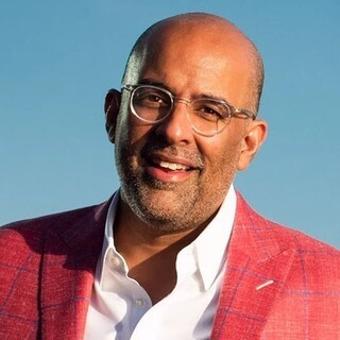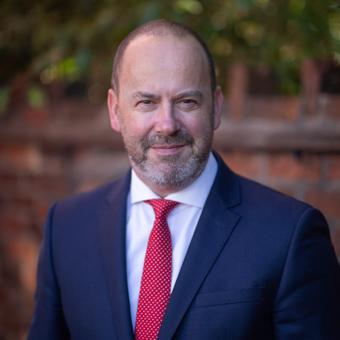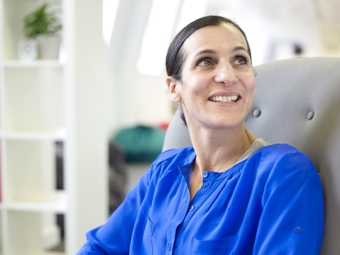In conversation with Mike Elston, Chief Counsel Europe & International at BAE Systems Air and Mark Levine, Director In-House at BCL Legal, on the impact of the Covid pandemic
So much for everything we thought we knew….
Mike to Mark: How did Covid impact recruitment in 2020 and what are you expecting in 2021?
Mark: January to March 20th 2020 was amazing, really busy with lots of assignments to assist on. As you’d expect in April - June there was next to nothing going on, and even in July just a few roles that were on stream in March came back on.
Happily August to December was extremely busy, which off the back of the previous four months was a relief to say the least.
January 2021 was a bit quieter, but from February onwards there have been a raft of roles coming onto the market. Whenever business is under stress the work of a lawyer goes up and the data from our latest salary survey certainly conveyed this: the results showed that across all regions lawyers worked more hours per week than the year before, and 94 per cent of lawyers were not furloughed at all during the pandemic. So, my expectation is for the in-house legal market to remain busy.
Mark to Mike: How will the insights gleaned from the mass home working of 2020 and early 2021 change how your in-house team works in the future?
Mike: The changes will be very significant and, while other opinions are available, my belief is that the pandemic marks a permanent watershed in terms of how the legal profession and the general population will work. Pre-Covid, I’d have classed myself as reasonably open to flexible working and maintained a “trust as the default position” ethos, but in retrospect my thinking was pretty narrow.
While I was never interested in time at desk, there was definitely a tacit assumption that on-site working most of the time was the baseline. Now I’m firmly in the camp of work whenever and wherever you like as long as (1) you hit your outputs, (2) you are working at a sustainable pace compatible with wellbeing and life outside work and (3) flexibility works both ways, so if the business needs you to be in a specific place at a specific time you will accommodate that.
I do think that there are more challenges to come. There is an argument that remote working is easier when everyone is in the same boat.
Essentially all of my team and all of our internal clients have been at home for a year and therefore everyone starts from the same baseline. When we have much more of a mixed economy we’ll need to think carefully about how to ensure everyone has the same information, access and ability to influence.
When working patterns are much more dynamic the key will be to ensure that no one gets left behind. Equally, although the last 12 months have undoubtedly been tough in so many ways, there are also positives that we should hold onto with both hands.
Massively improved IT tools have allowed us to continue to work effectively away from the office and have broken down the geographical boundaries that previously existed. My team, which crosses two continents, can feel more connected than ever and the scope for recruiting talent in the future has just grown exponentially.
Mike to Mark: What do you think are the premium skills and behaviours that candidates need to stand out in the evolving legal market post-Covid?
Mark: Much the same as previously, just more so. In-house lawyers need to be business-focused, collaborative and solution-focused. In addition, they need to be down to earth with an “open” personality. But now this needs to shine through via a computer screen, which some may find hard.
The use of technology is an absolute given these days but with the growth of legal tech, individuals will need to be focused on how technology can play a greater part in their role and to the benefit of the legal team.
Mark to Mike: What novel issues did in-house lawyers advise on with the onset of the pandemic?
Mike: That is quite a long list. Beyond the things you’d expect such as force majeure claims and disrupted supply chains, my team covered many novel issues at pace, with short notice and incomplete data. We had employees around the globe who need repatriation, temporary site closures and then site re-opening in a reconfigured system of work. We were involved in business continuity measures, communications and stakeholder management, drafting new processes and rapid risk assessment.
We worked closely with our security team to safeguard sites and assets, helped enable the mass distribution of IT kit and even worked with a local authority to set up a temporary morgue at one of our sites (that thankfully was never needed). More recently, we’ve been working on Covid testing, vaccination communications and planning for the future.
Overall, it feels like the legal team have spent much more time advising on day-to-day operational matters and thus our proximity and alignment with the business has increased. That is a real plus, in that the business is seeing the benefit of applying legal skills and judgement to very practical and rapidly emerging business problems. The only issue then is one of prioritisation, because the business as usual contractual, regulatory and business winning work has never slackened off.
BCL Note: Our recent poll to in-house lawyers reveals that 31 per cent of in-house lawyers saw the impact of their role elevated due to Covid, which backs up Mike’s experience of the benefits senior executives saw in having a lawyer involved in helping the business to respond to what we hope will be a once in a generation situation.
Impact of Covid on your role - poll results:
- Reduced 3%
- Elevated 31%
- No change 66%
Mike to Mark: Both as a leader yourself and as a recruiter, how has the pandemic changed the dialogue around wellbeing and work-life balance?
Mark: Wellbeing of the team was my first concern when this all hit. It has taken many years to build what I believe to be the best in-house legal recruitment team in the regions and I wanted to do everything in my power to keep us together.
With no recruitment going on from April-June my message was that we would all return when the market allowed us to, and we would deal with what came our way post lockdown/ furlough. None of us were in control of these events so they should try not to worry too much.
When we did return to work and the office everything was going pretty well until lockdown 2. Working from home, dark mornings and darker afternoons did really affect some of the team.
My message to them was we just needed to get through December and make it through to January. So, if that meant finishing early, or whenever your mind had had enough, then so be it. I hope that I was as supportive as I could have been.
Moving forward we are going to have two core office days so that we can be together as a team – Tuesdays and Thursdays. We have a new team member joining us in June so he will need more one-to-one support, which will mean some more office time for those assisting in his training. But, in short order, we have moved to a more home-working environment – as that is what we have all got used to!
BCL Note: Our recent poll again reflects the shift to working from home:
Post Covid do you anticipate working from home to continue?
41% expect to be wfh 1-2 days a week
45% expect to be wfh 3-4 days a week
5% expect to be wfh 5 days a week
9% expect to be working from the office 5 days a week
Mark to Mike: How will you maintain team culture and wellbeing and ensure effective on the job training if teams are operating much more remotely?
Mike: This is the hard part. Across the pandemic we’ve used a whole raft of activities of keep us sane and bonded. We’ve done meditation, Christmas crafts, resilience training, outdoors meetings (when this was allowed!) and simply regular time slots when the only rule is you can’t talk about work (these have tended to focus on internet shopping habits and what to watch on streaming services). As lots of people have noted, bizarrely we all know each other better even though we’ve hardly seen each other in person for a year.
The worry is that this was made easier because the majority of the team have worked together in the office for a number of years and thus we had strong foundations. If you are a new starter working remotely it is much harder to tune into the ethos of the team and get that vital on-the-job training that you absorb by seeing individuals and teams in action in the flesh.
We’ve actually had two new starters during the pandemic and they have both been fantastic, but I’m not complacent and we certainly need to spend more time physically together when things open up. In the meantime, we’ve significantly bolstered our on-boarding process to deal with new starters in a remote working environment to ensure they feel embedded within the team and the business despite not having any physical contact.
There have been two major takeaways for me.
The first is that a quick “how are you?” and then on to business is not going to cut it. You need to take time to properly listen to people, pick up on what they are and aren’t saying and then find ways to help.
Just because someone was good last week doesn’t mean they are this week. Creating psychological safety for the team is paramount – not only giving them access to resources to improve and maintain their wellbeing but also providing a safe environment for them to feel that they can openly talk about their wellbeing to me or any member of the team.
Wellbeing goes beyond mental health, it also includes physical, emotional, environmental and social factors (to name just a few) that may impact the team at different times and in a different ways.
Secondly, as a leader I have realised that previously I spent too much time as an individual contributor and too little time doing the things that enable the team to perform to their full potential. There is only so much I can do as a single individual, but if I can ensure my team is properly resourced, rewarded and supported and have opportunities to grow and try new things then this time investment will make the most difference overall to how we support the business.
Mike to Mark: Are you optimistic for the next 18 months?
Mark: Yes... I am a cautious optimist! You have to be in this job!
Mark to Mike: Same question, how are you feeling about the next 18 months?
Mike: I’m definitely positive. If we can maximise the benefits of more flexible working and minimise the downsides then I think we can have it all: we can be more effective as a legal team and find a better and healthier balance with life outside of work. That’s the plan anyway. Ask me again in 2022!
Visit BAE Systems Air









